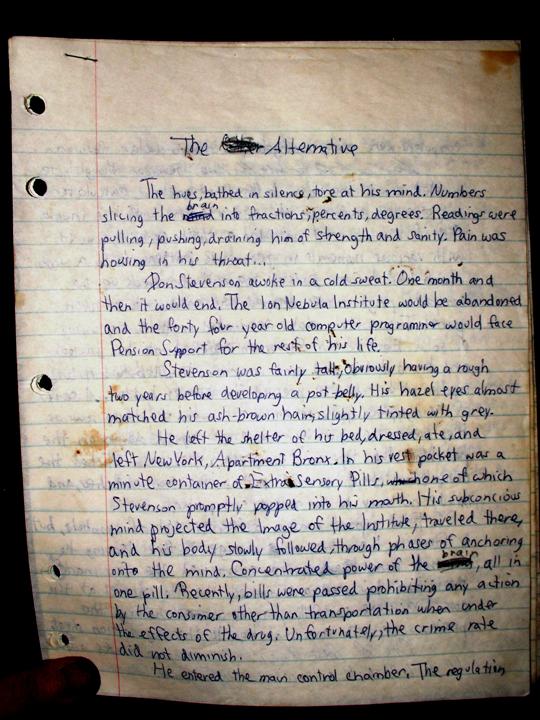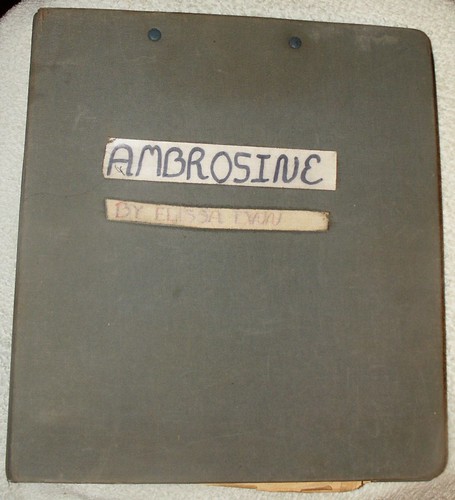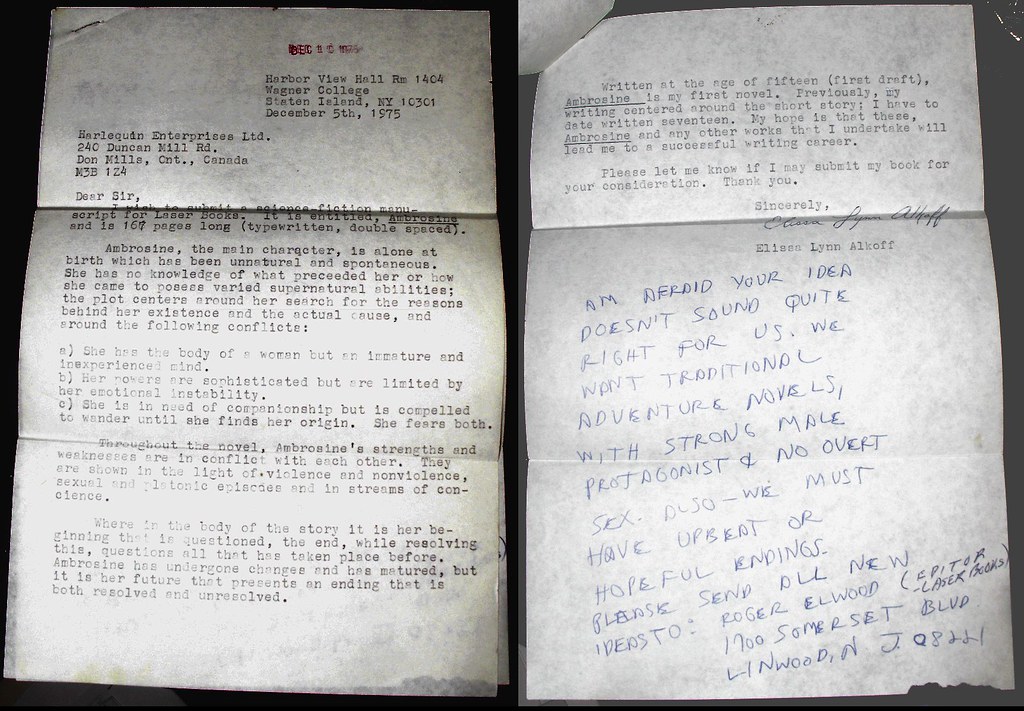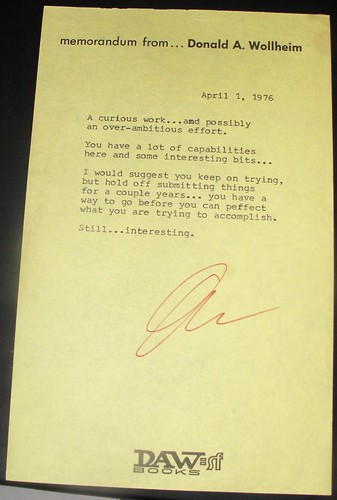A Bit of Time Travel

This is page one of the first draft of the first non-Star Trek science fiction story I ever wrote (more legible in the large view). I was still in grade school at the time. The story was about a scientist and an android who in the end became each other.
I had begun writing Star Trek adventures when that show went off the air in 1969, because I missed it so much. That summer my mother suffered a heart attack that almost killed her at age 44. (Just before Star Trek first aired in 1966 I almost died, myself. That story is covered in my entry "Name one event that changed your life.")
Starting in about the seventh grade, I expanded into general science fiction. The third story I wrote garnered me the Read Magazine Creative Writing Award in 1972, when I was in the eighth grade. (I was one of two people in my school to receive the award that year.)
Until word processing arrived I always wrote my drafts in longhand. After I finished this rough draft I wrote it again, more neatly, tweaking as I went along. Once I was satisfied with the tweaking I typed it up on a Smith Corona manual typewriter.
About three years after I wrote "The Alternative" I drafted my first novel....

I wrote Ambrosine when I was 15, in the summer of 1974; this is my original notebook from back then. At that time I used my first and middle name as my nom de plume. My handwriting here is on medical adhesive tape that I'd pilfered from my parents' bathroom and stuck onto a cloth-covered three-ring binder.
I wrote part of the draft, carrying this notebook with me, while my parents and I vacationed at the Gilcrest Motel in New Hampshire's White Mountains. (I stayed again at the Gilcrest years later, during the time of my entry The Unexpected Trails.) The night sky was so thick with stars that I had trouble teasing out the constellations. It was the perfect, magical setting for writing a science fiction novel.
Ambrosine took its cue largely from fantasies I'd had during the preceding years. The people inside my head underwent adventures that often reflected the trials and tribulations I was experiencing as an adolescent, only I hadn't made that connection at the time. At first I believed that somehow I was able to communicate with the far future. I had devised (and even lectured in school about) an elaborate theory of time cycles to explain this contact. I was viewed as a "kook" but my teachers were intrigued because I was an intelligent, articulate "kook".
In truth my characters were an internal support group. I became anorexic (and later bulimic) after I banished them in April 1975. The novel was a way for me to fictionalize what I had for years believed was real. On one level I still believed in the characters while I did the writing, but relegating them to fiction was part of a process of exorcism for me.
In addition to writing Ambrosine in the summer of 1974 I prevailed upon my parents to let me enter therapy because I felt suicidal. (Among other redeeming qualities, the people inside my head kept telling me that the only way I could enter their world -- the future -- was by not killing myself.) I entered outpatient therapy in September of that year.

I sent this query letter for Ambrosine (more legible in the large view) in December 1975, less than two months after I turned 17. Looking back at it, I think it's rather quaint.
I was a college freshman -- still anorexic, and still in therapy.

I grew up in Brooklyn, which placed me a subway ride away from the publishing houses in Manhattan. When I received a positive response to my query letter for Ambrosine I delivered the manuscript in person and got to meet and talk with Donald A. Wollheim. He gave me a copy of Tanith Lee's novel The Birthgrave, saying my premise reminded him of that work.
I was completely naive, and didn't fully realize just how special this attention was. I was still 17 years old at the time of this memo.
Not long afterwards I began drafting my second novel, Flying on Preshaped Wings, in which the character Ambrosine continued to figure. Only now she was presented as the fantasy of an anorexic woman in therapy. I also incorporated into that writing my obsession with the piano, which at times had me practicing for up to five hours at a stretch.
Today my characters enjoy a certain level of autonomy -- explained in more detail in my entry Collaborations. That autonomy, tempered now by craft and by more psychological awareness, stems from a long tradition of relinquishing myself to my visions -- and to the creative force that brings them to me.











3 Comments:
Fun to collect a few mementos in a post, a post that becomes like a scrap-book of images of writings through the years - & rejection slips! What a great way to collect these pieces, to review the route to here.
(Oh, I was severely bulimic for 7 years in my 20s, and had been suicidal as a teen, parallels, what we've been through, huh.)
It's amazing to me that you were functioning at this level at 17, and yet another aspect of your life was dysfunctional.
I'd love to hear more about your therapy sometime.
A rejection letter from Donald Wollheim! I'm impressed! And he was so constructive.
There's much more that I should be commenting on, but that so struck my eye that it overwhelmed everything else.
Post a Comment
<< Home